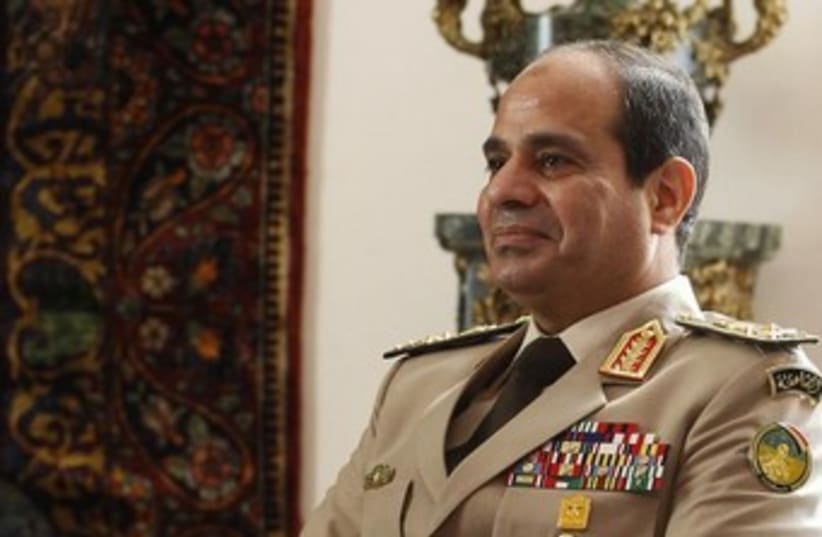Egyptian Gen. Abdel Fattah al-Sisi is set to take the ruthless crackdown on the Muslim Brotherhood to Hamas, its branch next door in the Gaza Strip.“Gaza is next,” said one senior security official quoted by Reuters.Sisi, who is likely to run for president, feels that to lead effectively and improve his country’s economy, he needs to stamp out all forms of opposition and terrorism so that people feel secure.
Following in the Arab tradition of strong rulers, Sisi is working to seize complete control of the state apparatus and to eliminate any possible threats, especially from the Muslim Brotherhood and other radical Islamic groups.It is clear that Sisi understands what the Middle Eastern scholar P.J. Vatikiotis wrote in Islam and the State: “The task of the Muslim today is not to seek the truth, but to restore power. This is the significance of the Muslim Brotherhood in Egypt and the Islamic militant organizations in Pakistan and Iran.… The state, both in Islam and according to these groups, is a religious, not a territorial or ethnic, concept. It is even ideological, because it views political power as a means of attaining the religious ideal, i.e. the unfettered application of the Shari’a.”The Muslim Brotherhood in Egypt (the founding branch of the movement), like all of its branches in various Muslim states, seeks to first Islamize and take control of the country, and then move on to all of the other states in the region.In the end, all of these states would unite under the ultimate sovereignty of the renewed caliphate, which would be divided into provinces or sub-states.Hence, the Palestinian branch of the Muslim Brotherhood, which became known as Hamas at the outbreak of the first intifada in 1987, is seen as a threat, tied ideologically to the continued struggle against the current Egyptian government.Prof. Abdallah Schleifer, a Cairo-based columnist for the Al Arabiya News website, told The Jerusalem Post that reports attributed to state security say that Mohamed Morsi escaped from jail with the help of Hamas during the 2011 uprising against the regime of Hosni Mubarak.“It would be reasonable for the Egyptian authorities to be convinced that the terrorist operations in Sinai against both the Egyptian armed forces and the police that dramatically escalated after the overthrow of Morsi will never stop until Hamas rule in Gaza comes to an end. But that will not be easy,” said Schleifer."The closing of tunnels has cut off the bulk cash smuggling and the taxation of goods that came through the tunnels,” Jonathan Schanzer, vice president for research at the Foundation for Defense of Democracies, told the Post.“This has reduced the Hamas budget by roughly 75 percent. In my 10 years of following terror finance, I have never seen a terror group come this close to financial ruin,” said Schanzer.Egypt's Sisi is set to take crackdown on Muslim Brotherhood to Hamas in Gaza
Egyptian authorities may not be satisfied that terrorist operations will cease until Hamas rule over the Gaza Strip comes to an end, expert tells 'Post.'
